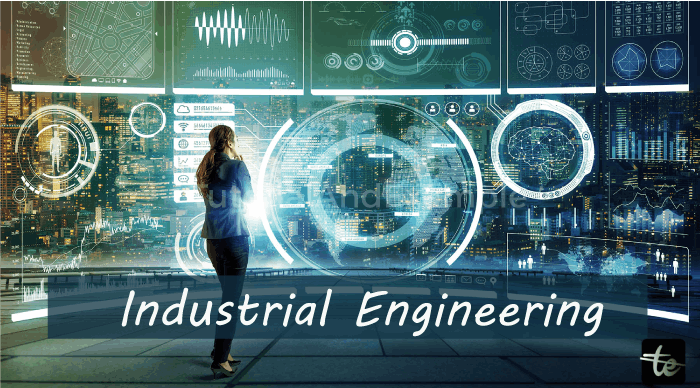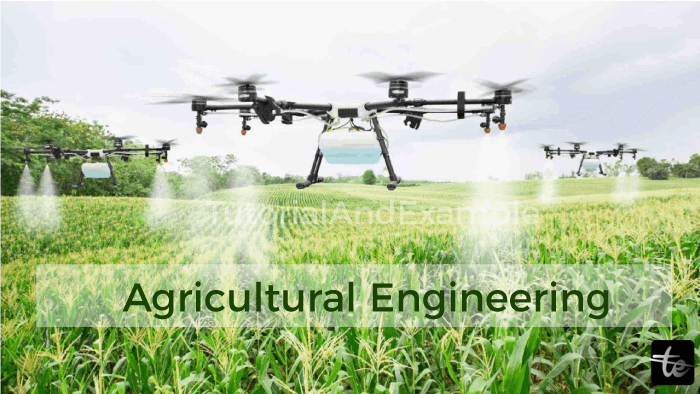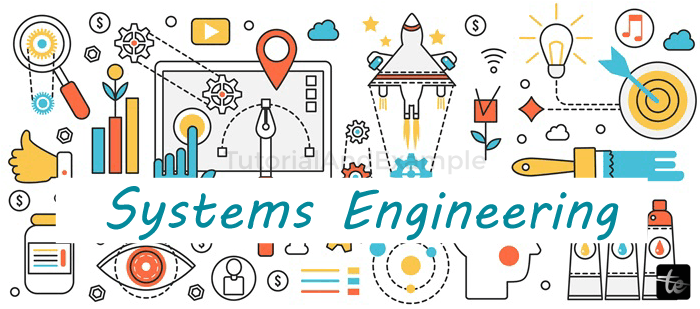Engineering Applications of Artificial Intelligence
AI is very beneficial for engineering applications because it can automate tasks, analyze data quickly, and optimize designs and systems. It can also predict maintenance needs, making engineering processes more efficient and cost-effective.
Artificial Intelligence (AI) finds applications in various fields of engineering.
Here are some key Engineering fields and AI applications:
1. Mechanical Engineering:

AI applications in mechanical engineering assist engineers by giving tools to design and optimize complicated systems more effectively, resulting in enhanced performance and cost savings. Furthermore, AI-powered robots and automation simplify industrial processes, boost accuracy, and improve overall efficiency, allowing engineers to focus on higher-level jobs and innovation.
- Design optimization: AI algorithms can assist in designing and optimizing complex mechanical systems, improving performance and reducing costs.
- Robotics and automation: AI-powered robots can automate manufacturing processes, perform precision tasks, and enhance efficiency.
- Structural analysis: AI algorithms can analyze structural data to predict failures, optimize designs, and improve safety.
2. Civil Engineering:

AI applications in civil engineering help engineers by providing real-time insights into the health of infrastructure, allowing for timely maintenance interventions and ensuring safety. Additionally, AI algorithms optimize traffic management and construction planning, enabling engineers to improve efficiency, reduce congestion, and enhance project timelines and resource allocation.
- Structural health monitoring: AI can analyze sensor data to monitor the health of infrastructure, detect anomalies, and predict maintenance requirements.
- Traffic management: AI algorithms can optimize traffic flow, analyze congestion patterns, and improve transportation systems.
- Construction planning: AI can assist in project planning, scheduling, and resource allocation, optimizing construction processes.
3. Electrical Engineering:

AI applications in electrical engineering empower engineers by enabling them to optimize power system operations, improve energy efficiency, and reduce costs. Additionally, AI-based fault diagnosis enhances system reliability by quickly detecting and troubleshooting electrical faults, while smart grid management utilizing AI algorithms allows engineers to analyze energy data, predict demand, and optimize energy distribution in real time, leading to a more sustainable and reliable electrical grid.
- Power system optimization: AI algorithms can optimize power generation, distribution, and load management, ensuring efficient energy usage.
- Fault diagnosis: AI can analyze electrical signals to detect faults, troubleshoot issues, and improve system reliability.
- Smart grid management: AI algorithms can analyze energy data, predict demand, and optimize energy distribution in real time.
4. Computer Engineering:

AI applications in computer engineering assist engineers by enabling efficient analysis of large datasets, detecting meaningful patterns, and facilitating informed decision-making. Additionally, advancements in natural language processing enable seamless interaction between humans and machines, while image and video analysis capabilities support engineers in developing applications for object recognition, computer vision, and video surveillance, enhancing efficiency and expanding possibilities in various domains.
- Pattern recognition and Machine learning: Artificial intelligence (AI) has opened new horizons for computing that were once impossible areas to master effectively. Using techniques such as pattern recognition or machine learning allows computers to rapidly collect vast volumes of data and then analyze them for meaningful patterns without much human intervention needed.
- Natural language processing: Advances are being made in natural language processing, so it will soon be normal for humans not only to interact seamlessly but also rely on machines for aid in day-to-day life.
- Image and video analysis: AI algorithms can analyze visual data, allowing applications such as object identification, computer vision, and video surveillance.
5. Biomedical Engineering:

AI applications in biomedical engineering assist engineers by enabling accurate medical diagnostics, providing personalized therapy suggestions, and helping in the early detection of abnormalities through image analysis. Additionally, AI-powered prosthetics and assistive devices developed by engineers enhance mobility and restore functionality for individuals with impairments, improving their overall quality of life.
- Medical diagnostics: AI algorithms can analyze medical data, help in illness diagnosis, and give personalized therapy suggestions.
- Image analysis: AI can analyze medical images like X-rays and MRI scans to find abnormalities and illnesses early.
- Prosthetics and assistive devices: Artificial intelligence-powered prosthetics and assistive devices can increase mobility and restore function and overall quality of life for people with impairments.
6. Chemical Engineering:

The application of AI in chemical engineering enables engineers to enhance process efficiency, increase yields, and lower energy consumption through the optimization of chemical processes. Additionally, AI assists engineers in identifying potential hazards, predicting safety risks, and designing safer processes by analyzing chemical data, ensuring product quality and consistency through real-time monitoring and control.
- Process optimization: AI algorithms can optimize chemical processes, improve yields, and reduce energy consumption.
- Safety analysis: AI can analyze chemical data to identify potential hazards, predict safety risks, and assist in designing safer processes.
- Quality control: AI can analyze sensor data to monitor and control chemical processes, ensuring product quality and consistency.
7. Environmental Engineering:

AI applications in environmental engineering support engineers by providing tools to monitor and manage environmental conditions, such as air and water quality, aiding in the preservation of natural resources. Additionally, AI helps optimize waste management processes, increase recycling efficiency, and contributes to climate change mitigation strategies by analyzing climate data and predicting future patterns, assisting engineers in making informed decisions for sustainable environmental practices.
- Environmental monitoring: AI algorithms can analyze sensor data to monitor air quality, water quality, and pollution levels, assisting in environmental management.
- Waste management: AI can optimize waste treatment processes, improve recycling efficiency, and reduce environmental impact.
- Climate modeling: AI algorithms can analyze climate data, predict future climate patterns, and aid in climate change mitigation strategies.
8. Materials Engineering:

AI applications in materials engineering support engineers by facilitating the design of new materials with desired properties, accelerating the material discovery process, and enabling improved material composition. AI also aids in failure analysis by analyzing data to identify causes and predict failure modes, enhancing material reliability. Additionally, AI-based quality control ensures consistent material quality by monitoring properties, detecting defects, and optimizing manufacturing processes.
- Material design: AI algorithms can assist in designing new materials with specific properties, optimizing material composition, and accelerating material discovery.
- Failure analysis: AI can analyze material failure data to identify causes, predict failure modes, and improve material reliability.
- Quality control: AI can analyze sensor data to monitor material properties, detect defects, and ensure consistent quality in manufacturing processes.
9. Industrial Engineering:

AI applications in industrial engineering assist engineers by optimizing supply chain operations, improving inventory management, forecasting demand, and streamlining logistics, leading to enhanced efficiency and cost reduction. Additionally, AI aids in process improvement by analyzing production data, identifying bottlenecks, and optimizing workflows to increase productivity while ensuring product quality standards through AI-based quality assurance techniques such as defect detection and quality inspections.
- Supply chain optimization: AI algorithms can optimize inventory management, demand forecasting, and logistics, improving efficiency and reducing costs.
- Process improvement: AI can analyze production data, identify bottlenecks, and optimize workflows to enhance productivity.
- Quality assurance: AI algorithms can analyze sensor data to detect defects, perform quality inspections, and ensure product quality standards.
10. Agricultural Engineering:

AI applications in agricultural engineering assist engineers by optimizing crop management practices through data analysis, leading to improved yields and resource efficiency. AI-powered robots automate harvesting processes, enhancing operational efficiency. Additionally, AI aids in disease detection by analyzing plant health data, enabling timely interventions.
- Crop management: AI algorithms can analyze data from sensors, satellites, and drones to optimize irrigation, fertilizer application, and pest control for improved crop yield.
- Harvesting automation: AI-powered robots can automate harvesting processes, identify ripe crops, and enhance efficiency in agricultural operations.
- Disease detection: AI can analyze plant health data to detect diseases, pests, and nutrient deficiencies, enabling timely interventions.
11. Geological Engineering:

In geological engineering, AI helps engineers by analyzing soil and rock data to assess stability and predict landslides, supporting informed geotechnical engineering decisions. It also aids in mineral exploration by processing geological data to identify potential deposits, streamlining exploration efforts, and reducing costs. Furthermore, AI assists in risk assessment by analyzing geological data to assess natural hazards and mitigate associated risks in infrastructure projects.
- Geotechnical analysis: AI algorithms can analyze soil and rock data to assess stability, predict landslides, and support geotechnical engineering decisions.
- Mineral exploration: AI can process geological data to identify potential mineral deposits, streamline exploration efforts, and reduce exploration costs.
- Risk assessment: AI can analyze geological data to assess natural hazards, such as earthquakes and landslides, and mitigate associated risks in infrastructure projects.
12. Systems Engineering:

AI applications in systems engineering aid engineers in the design and optimization of complex systems, hence boosting performance and efficiency. AI also supports risk analysis and mitigation by recognizing possible hazards, analyzing their impact, and giving crucial decision-making insights. Furthermore, AI aids in the smooth integration and interoperability of various engineering systems, improving overall efficiency and effectiveness.
- System design and optimization: AI can assist in designing complex engineering systems, optimizing system architectures, and improving overall system performance.
- Risk analysis and mitigation: AI algorithms can analyze data from multiple sources to identify risks, assess their potential impact, and support decision-making in system development and operation.
- System integration and interoperability: AI can help ensure seamless integration and interoperability of diverse engineering systems, enhancing efficiency and effectiveness.
13. Aerospace Engineering:

Artificial intelligence (AI) is highly valuable in aerospace engineering, offering a range of applications that revolutionize the field. Some key uses of AI in aerospace engineering include:
- Autonomous Systems: AI enables the development of autonomous drones, spacecraft, and aircraft. These systems can navigate, make intelligent decisions, and perform tasks without human intervention, enhancing efficiency and safety.
- Aerodynamic Optimization: Artificial intelligence (AI) techniques are utilized to optimize wing designs and aerodynamic profiles. This increases fuel efficiency, drag reduction, and overall performance of aerospace vehicles.
- Mission Planning: AI can help with mission planning, trajectory optimization, and space exploration jobs. It can analyze large amounts of data to find the most efficient routes, locate the best launch windows, and make sound judgments throughout space missions.
- Flight Simulation and Training: Artificial intelligence (AI) is utilized in flight simulators and training systems to produce realistic scenarios, replicate varied flying circumstances, and give realistic training experiences to pilots.
- Air Traffic Management: Air traffic management systems use AI algorithms to optimize airspace use, increase traffic flow, and assure safe and efficient aircraft movements.
- Fault Diagnosis: AI can analyze data from sensors and systems in real-time to find problems and solve difficulties. This helps in identifying and addressing potential problems before they escalate.
14. Marine Engineering:

The use of AI in marine engineering helps engineers by enabling the development of autonomous marine systems that can perform tasks efficiently and collect valuable data without human intervention. Furthermore, AI algorithms help to optimize ship performance, reduce environmental impact, and improve offshore safety, eventually boosting the overall efficiency and efficacy of marine engineering practices.
- Autonomous marine systems: Artificial intelligence (AI) is being utilized to construct autonomous underwater vehicles (AUVs) and unmanned surface boats (USVs) for activities such as ocean exploration, data collecting, and environmental monitoring.
- Ship performance optimization: AI algorithms can optimize ship design, route planning, and fuel use, minimizing environmental impact and increasing economy.
- Offshore operations: AI can assist in monitoring and maintaining offshore structures, optimizing operations, and ensuring safety in oil and gas exploration and wind energy farms.
Advantages of using AI in Engineering Applications:
- Increased efficiency and productivity by automating repetitive tasks.
- Enhanced data analysis capabilities for better insights and informed decision-making.
- Optimization of designs and processes for improved performance and resource utilization.
- Early detection of faults and predictive maintenance to prevent equipment failures.
- Streamlined project management and resource allocation.
- Improved product quality and reliability.
- Accelerated problem-solving and troubleshooting.
- Exploration of new frontiers and innovations in engineering.
- Reduction of costs and waste through optimized processes.
- Enhanced safety and security in engineering systems.
- Seamless integration and interoperability of diverse engineering systems.
- Personalized and adaptive engineering solutions.
- Improved risk assessment and mitigation strategies.
- Advancement towards sustainable and environmentally friendly engineering practices.
- Increased competitiveness and market advantage through innovative applications.
Disadvantages of using AI in Engineering Applications
- Dependence on AI systems and algorithms, which may be prone to errors or malfunctions, leading to potential system failures.
- The limited interpretability of AI models makes it difficult to understand the reasoning behind their decisions.
- Challenges in data quality and availability, as AI algorithms heavily rely on high-quality and comprehensive data for accurate analysis.
- High implementation and maintenance costs associated with AI infrastructure and expertise.
- Ethical and privacy concerns related to the use of AI, such as data privacy, algorithmic bias, and potential job displacement.
- Lack of human intuition and creativity in problem-solving, as AI systems are primarily based on pre-defined rules and patterns.
- Potential loss of human expertise and knowledge if engineers overly rely on AI systems without maintaining their own skills and expertise.
- Vulnerability to cybersecurity threats and attacks, as AI systems can be targets for malicious activities.
- Difficulty in integrating AI systems with existing engineering processes and legacy systems.
- Legal and regulatory challenges associated with the use of AI in engineering applications, such as liability and accountability issues.
Conclusion:
In conclusion, the application of AI in various branches of engineering brings significant benefits. It improves efficiency, enhances decision-making, and automates tasks, leading to better productivity and resource utilization. From optimizing designs and processes to ensuring safety and quality, AI contributes to advancements in mechanical, civil, electrical, chemical, computer, biomedical, environmental, materials, industrial, agriculture, marine, aerospace, and systems engineering. It enables engineers to solve complex problems, analyze data, and make informed decisions, ultimately driving innovation and improving the overall performance and sustainability of engineering systems across diverse industries.